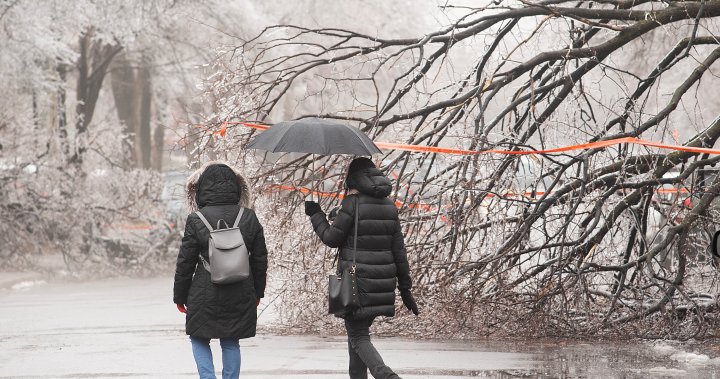
How climate change is battering budgets of Canadian towns, cities
Global News
In Canada, cities and towns are increasingly having to dispense additional sums to guard against severe weather and clean up in its aftermath.
The hamlet of Gore, Que., had the foresight to start preparing for more intense annual flooding due to climate change a decade ago.
That’s when the rural township 60 kilometres northwest of Montreal began quadrupling the size of its culverts to accommodate greater water flow under its roads.
But that still wasn’t enough to withstand the 2023 flood season.
“We ended up losing three roads at a cost of close to $1 million,” Gore Mayor Scott Pearce said in a recent interview. The town’s annual budget is around $6 million.
Gore is one of scores of Canadian municipalities whose budgets are being squeezed by climate change. As high inflation eats away government revenues, cities and towns are increasingly being battered by historic fires, flooding, heat and ice storms, and having to dispense additional sums to guard against severe weather and clean up in its aftermath. Municipal officials are warning that they’ll be unable to absorb growing weather-related costs without more money from the federal and provincial governments.
“Municipalities of all sizes across the country, we’re seeing the amount of damage – it’s unbelievable,” said Pearce, who is also president of the Federation of Canadian Municipalities. Provincial and federal governments must invest more, he said. “We’re seeing more and more damage year by year.”
Montreal, Ottawa and Regina are among the cities where severe weather has threatened balanced budgets in the last year.
In Regina, unexpectedly significant snowfall events and resulting road maintenance costs at the end of 2022 produced an operating deficit “for the first time in corporate memory,” the city’s financial strategy director, Barry Lacey, told its executive committee in May. Chris Warren, the city’s roadways and transportation director, directly linked the growing operational costs in his department with climate change.













